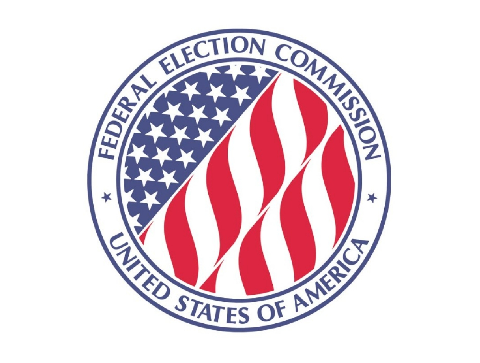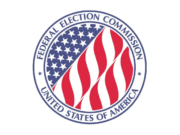On September 12, 2023, the Institute for Free Speech submitted comments to the Federal Election Commission in support of Agenda Document 23-21-A, “Investigations Conducted by the Office of General Counsel.”
Read a PDF of the comments here.
September 12, 2023
Federal Election Commission
1050 First Street, N.E.
Washington, D.C. 20463
RE: Agenda Document No. 23-21-A: Investigations Conducted by the Office of General Counsel
Dear Commissioners:
The Institute for Free Speech[1] submits this comment in support of Agenda Document 23-21-A, “Investigations Conducted by the Office of General Counsel.”
The proposals outlined in this document reflect an appropriate level of respect for the sensitive nature of any investigation into political activity by American citizens; are an excellent way to ensure that the Commission, which is most accountable to Congress and the American people and which must operate on a bipartisan basis, fulfills its statutory role directing the affairs of the agency; and helps the Commission make informed choices about how to allocate scarce agency resources.
I. Federal Election Commission Investigations are Uniquely Sensitive Because They Involve Core First Amendment Rights
An investigation by the Federal Election Commission (“FEC”) is unlike an investigation by any other administrative agency because the FEC’s mission is unlike that of any other agency. “Unique among federal administrative agencies, the Federal Election Commission has as its sole purpose the regulation of core constitutionally protected activity—‘the behavior of individuals and groups only insofar as they act, speak and associate for political purposes.’”[2]
This matters because “[t]he First Amendment ‘has its fullest and most urgent application precisely to the conduct of campaigns for political office.’”[3] Indeed, “[t]he First Amendment affords the broadest protection” to the discussion of public issues and candidates.[4] Moreover, the First Amendment right to discuss candidates and qualifications for political office cannot be cut down to its core by administrative processes; “First Amendment freedoms need breathing space to survive.”[5]
While the Court has recognized that there is a compelling interest in preventing quid pro quo corruption or the appearance thereof that justifies governmental action, it is essential to ensure that the pursuit of quid pro quo corruption does not unduly cramp the “breathing space” that is necessary for First Amendment freedoms to survive and flourish.
Federal investigations are not trifling matters. In light of the aggressive use of federal law to prosecute process crimes, including purported false statements under 18 U.S.C. § 1001, and broad interpretations of the term “conspiracy” that are unmoored from the text of the law,[6] even fact witnesses are well-advised to retain counsel and keep their guard up when interacting with federal investigators.
There is a clear tension between this reality and the constitutional command that “[t]he First Amendment does not permit laws that force speakers to retain a campaign finance attorney . . . or seek declaratory rulings before discussing the most salient political issues of our day.”[7]
Addressing this tension requires heightened vigilance. Concerns about the proper scope of an inquiry into political speech do not evaporate when the Commission finds reason to believe a violation has occurred. Overzealous investigations can drag in unnecessary third parties and become roving and free-flowing inquiries into all aspects of respondents’ lives and businesses, chilling the current and future exercise of core First Amendment rights. Unlike other agencies, “[p]lainly, mere ‘official curiosity’ will not suffice as the basis for FEC investigations.”[8]
The proposed policy does not resolve this tension, but it does treat it with appropriate respect. Adding new witnesses or lines of inquiry are significant actions with potentially broad consequences for the exercise of core First Amendment rights. As such, these decisions should be made by those most accountable to the American people: the Commissioners.
II. The Statute Requires the Commission to Direct Investigations
Vesting authority to direct investigations in the Presidentially appointed, Senate-confirmed members of the Commission is not just sound policy. It is also statutorily required.
The Federal Election Campaign Act is clear: “[t]he Commission has the power . . . to conduct investigations,”[9] not the Office of the General Counsel. Similarly, the Commission has the power “to administer oaths or affirmations,” “to order testimony to be taken by deposition,” “to compel testimony and the production of evidence,” and “to require by subpoena . . . the attendance and testimony of witnesses and the production of all documentary evidence relating to the execution of its duties.”[10]
The Act further makes clear that “Commission” is not a generic reference to the Federal Election Commission as a whole. It means the bipartisan body of six Presidentially appointed, Senate-confirmed Commissioners. For example, the Act specifies “[a]ll decisions of the Commission with respect to the exercise of its duties and powers under the provisions of this Act shall be made by a majority vote of the members of the Commission,” except certain powers (including the power to conduct investigations) that require the affirmative vote of four Commissioners, and provides that “[a] member of the Commission may not delegate to any person his or her vote or any decisionmaking authority or duty vested in the Commission by the provisions of this Act.”[11]
The Commission’s job under the Act is not just to authorize an investigation and unleash the Office of the General Counsel to do what it likes. The Commission has a statutory obligation to direct an investigation. Directing requires active participation and oversight. The proposed policy provides a mechanism for the Commission to properly direct the investigations it authorizes.
III. The Reason to Believe Stage is the Appropriate Time to Consider an Investigation Plan
The reason to believe stage is the appropriate time to consider an investigation plan in order to assist the Commission in properly exercising its prosecutorial discretion and leveraging its resources.
Some have criticized the Agenda Document 23-21-A by claiming that it would violate the Act by allowing Commissioners to base reason to believe determinations on the approval of an investigation plan. As the thinking goes, a plan for an investigation is separate from whether the Commission believes a violation has occurred. Considering both together runs the risk that the Commission will reject a reason to believe determination based on disagreements about the scope of any resulting investigation.
With respect to those who have advanced this critique, it misses the mark.
First, considering an investigation plan along with a reason to believe determination is essential to the proper exercise of prosecutorial discretion. Whether the Commission believes a violation of the law is likely to have occurred is not the only consideration at the reason to believe stage. The Commission often also considers whether it is a prudent use of resources to investigate a potential violation.
Having a clear investigation plan when considering whether to pursue a matter is a commonsense solution to the challenges of allocating agency resources. It forces the Office of the General Counsel and the Commission to think through what is involved in investigating potential violations so they can make more informed decisions. Some fact patterns that seem complicated may yield simple investigation plans. Others that may seem simple at first blush may be far more complicated after more analysis.
There is also a simple solution to the challenge of disagreements over the scope of an investigation: approving an investigation at the lowest common denominator. This prevents the Commission from dismissing matters where there is a clear reason to believe a violation occurred based solely on disagreements over the scope of an investigation. It follows how the Commission already operates with respect to reason to believe findings. It also ensures that broader investigations have at least some measure of bipartisan support. And, perhaps most importantly, it recognizes that “[w]here the First Amendment is implicated, the tie goes to the speaker.”[12]
IV. The Proposed Procedures Will Not Unduly Delay Enforcement Matters
The proposed procedures will not unduly delay enforcement matters.
Some have suggested that the procedures in Agenda Document 23-21-A will cause delays in the Commission’s consideration and resolution of enforcement actions.[13] These concerns are likely overstated.
First, while speed is important, it is not the only relevant consideration. As outlined above, FEC investigations concern particularly sensitive constitutional speech. Getting an investigation right and avoiding overbreadth that may chill political speech matters.
Second, taking the time to thoughtfully consider how the Commission would conduct an investigation may speed up the consideration of enforcement matters. At minimum, it ensures that the Commission is ready to begin immediately after an authorizing vote. It also helps clarify thinking about what exact violations are alleged and what is necessary to prove them, which may produce higher quality recommendations. In addition, particularly in complicated cases, it is not unheard of for the Commission to have an extended back-and-forth with staff regarding the scope of the investigation and to place parameters on the investigation itself. The proposed process merely formalizes (and likely streamlines) these inquiries.
Finally, the proposed investigation plan incorporates a reasonable degree of flexibility in the initial approval. For example, the proposed investigation plan asks for “categories of documents to be consulted,” which provides some side bars for the investigation without excessive rigidity.
V. Conclusion
Agenda Document 23-21-A may not be a perfect solution, but the Commission should not let the perfect be the enemy of the very good.
This proposal reflects the appropriate level of respect for considerations of core First Amendment rights in any investigation into political activity, ensures that the Commission itself—the portion of the FEC that is most accountable to the American people and Congress—exercises its statutory authority, and it facilitates a better allocation of agency resources.
Therefore, we strongly urge the Commission to adopt Agenda Document 23-21-A.
Thank you very much for your time and consideration of our views.
Sincerely,
Bradley A. Smith Gary M. Lawkowski
Chairman Senior Fellow
[1] The Institute for Free Speech is a nonpartisan, nonprofit 501(c)(3) organization that promotes and defends the First Amendment rights to freely speak, assemble, publish, and petition the government.
[2] American Fed’n of Labor and Congress of Indus. Org. v. Fed. Election Comm’n, 333 F.3d 168, 170 (D.C. Cir. 2003) (quoting Fed. Election Comm’n v. Machinists Non-Partisan Political League, 655 F.2d 380, 387 (D.C.Cir.1981)).
[3] Federal Election Commission v. Cruz, 142 S. Ct. 1638, 1650 (2022) (quoting Monitor Patriot Co. v. Roy, 401 U.S. 265, 272 (1971)). See also Citizens United v. Federal Election Commission, 558 U.S. 310, 339 (2010) (“The First Amendment ‘has its fullest and most urgent application to speech uttered during a campaign for political office.’” (quoting Eu v. San Francisco County Democratic Central Comm., 489 U.S. 214, 223 (1989)) (cleaned up)).
[4] Buckley v. Valeo, 424 U.S. 1, 14 (1976).
[5] Nat’l Ass’n. for the Advancement of Colored People v. Button, 371 U.S. 415, 433 (1963).
[6] See 18 U.S.C. § 371; see also United States v. Klein, 247 F.2d 908, 921 (2d Cir. 1957), and its progeny, which interpret section 371 to criminalize impeding or obstructing the lawful functions of government through deceit or dishonest means, which may be interpreted broadly.
[7] Citizens United, 558 U.S. at 310.
[8] Machinists Non-Partisan Political League, 655 F.2d at 388.
[9] 52 U.S.C. § 30107(a) (emphasis added).
[10] Id.
[11] 52 U.S.C. § 30106(c).
[12] Fed. Election Comm’n v. Wisc. Right to Life, 551 U.S. 449, 474 (2007).
[13] At least one commenter has referred to “delays in OGC’s consideration of enforcement matters” (emphasis added). To clarify, unlike at other agencies, OGC does not “consider” enforcement matters. It provides a recommendation to the Commission, which can choose to accept, reject, or modify the recommendation. See, e.g. 11 C.F.R § 111.7 (General Counsel’s recommendation on complaint-generated matters).














